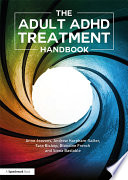

The book begins by establishing a clear understanding of Adult Attention Deficit Hyperactivity Disorder (ADHD). It discusses the prevalence of ADHD in adults, its symptoms, and how it often manifests differently than in children. This section emphasizes the importance of recognizing ADHD as a legitimate condition that affects many adults, often leading to challenges in personal and professional life. The authors outline common symptoms such as inattention, impulsivity, and hyperactivity, and explain how these can lead to difficulties in organization, time management, and maintaining relationships. By providing a comprehensive overview of ADHD, the book sets the foundation for understanding why effective treatment is crucial.
Continue readingThe handbook delves into the diagnostic process for adult ADHD, highlighting the importance of a thorough assessment by qualified professionals. It discusses various assessment tools and methodologies, including interviews, questionnaires, and behavioral assessments. The authors stress that a correct diagnosis is vital for effective treatment and that misdiagnosis can lead to inappropriate treatment plans. This section also covers the comorbidity of ADHD with other mental health disorders, such as anxiety and depression, which can complicate the diagnosis. By understanding the nuances of assessment, readers can appreciate the importance of seeking professional help.
Continue readingOne of the core sections of the book focuses on the various treatment options available for adults with ADHD. It outlines both pharmacological and non-pharmacological approaches, including stimulant medications, non-stimulant medications, cognitive-behavioral therapy (CBT), and lifestyle modifications. The authors provide insights into how these treatments work, their benefits, and potential side effects. They emphasize the need for a personalized treatment plan tailored to the individual's specific symptoms and circumstances. This section is crucial for empowering readers to make informed decisions about their treatment.
Continue readingThe handbook offers practical coping strategies and skills development techniques for adults living with ADHD. This includes time management tips, organizational skills, and methods for improving focus and concentration. The authors provide actionable advice on creating structured environments, utilizing technology to aid in organization, and developing routines that enhance productivity. This section is particularly valuable as it equips readers with tools they can implement immediately to manage their symptoms effectively and improve their daily functioning.
Continue readingThe importance of support systems is emphasized throughout the book. The authors discuss how family, friends, and professional support can play a critical role in the treatment and management of ADHD. They advocate for open communication and education about ADHD within these support networks to foster understanding and empathy. This section also highlights the role of support groups and therapy in providing a community for individuals with ADHD, which can be crucial for emotional well-being and motivation.
Continue readingLong-term management of ADHD is a significant focus of the book. The authors discuss the need for ongoing evaluation of treatment effectiveness and the importance of self-advocacy in managing one’s condition. They encourage readers to take an active role in their treatment journey, including advocating for themselves in medical settings and seeking out resources and support. This section promotes the idea that managing ADHD is a lifelong process that requires continuous learning and adaptation.
Continue readingThe final key idea addresses the future directions of ADHD research and treatment. The authors discuss emerging trends in understanding ADHD, including genetic research, neuroimaging studies, and the impact of technology on treatment options. They encourage readers to stay informed about new developments in the field, as ongoing research may lead to more effective treatments and a deeper understanding of ADHD. This section inspires hope for individuals with ADHD and emphasizes the importance of continued advocacy and research to improve outcomes.
Continue readingThe reading time for The Adult ADHD Treatment Handbook depends on the reader's pace. However, this concise book summary covers the 7 key ideas from The Adult ADHD Treatment Handbook, allowing you to quickly understand the main concepts, insights, and practical applications in around 23 min.
The Adult ADHD Treatment Handbook is definitely worth reading. The book covers essential topics including Understanding ADHD in Adults, Diagnosis and Assessment, Treatment Options, providing practical insights and actionable advice. Whether you read the full book or our concise summary, The Adult ADHD Treatment Handbook delivers valuable knowledge that can help you improve your understanding and apply these concepts in your personal or professional life.
The Adult ADHD Treatment Handbook was written by Andrew Harpham-Salter, Blandine French, Tara Bishop.
If you enjoyed The Adult ADHD Treatment Handbook by Andrew Harpham-Salter, Blandine French, Tara Bishop and want to explore similar topics or deepen your understanding, we highly recommend these related book summaries:
These books cover related themes, complementary concepts, and will help you build upon the knowledge gained from The Adult ADHD Treatment Handbook. Each of these summaries provides concise insights that can further enhance your understanding and practical application of the ideas presented in The Adult ADHD Treatment Handbook.